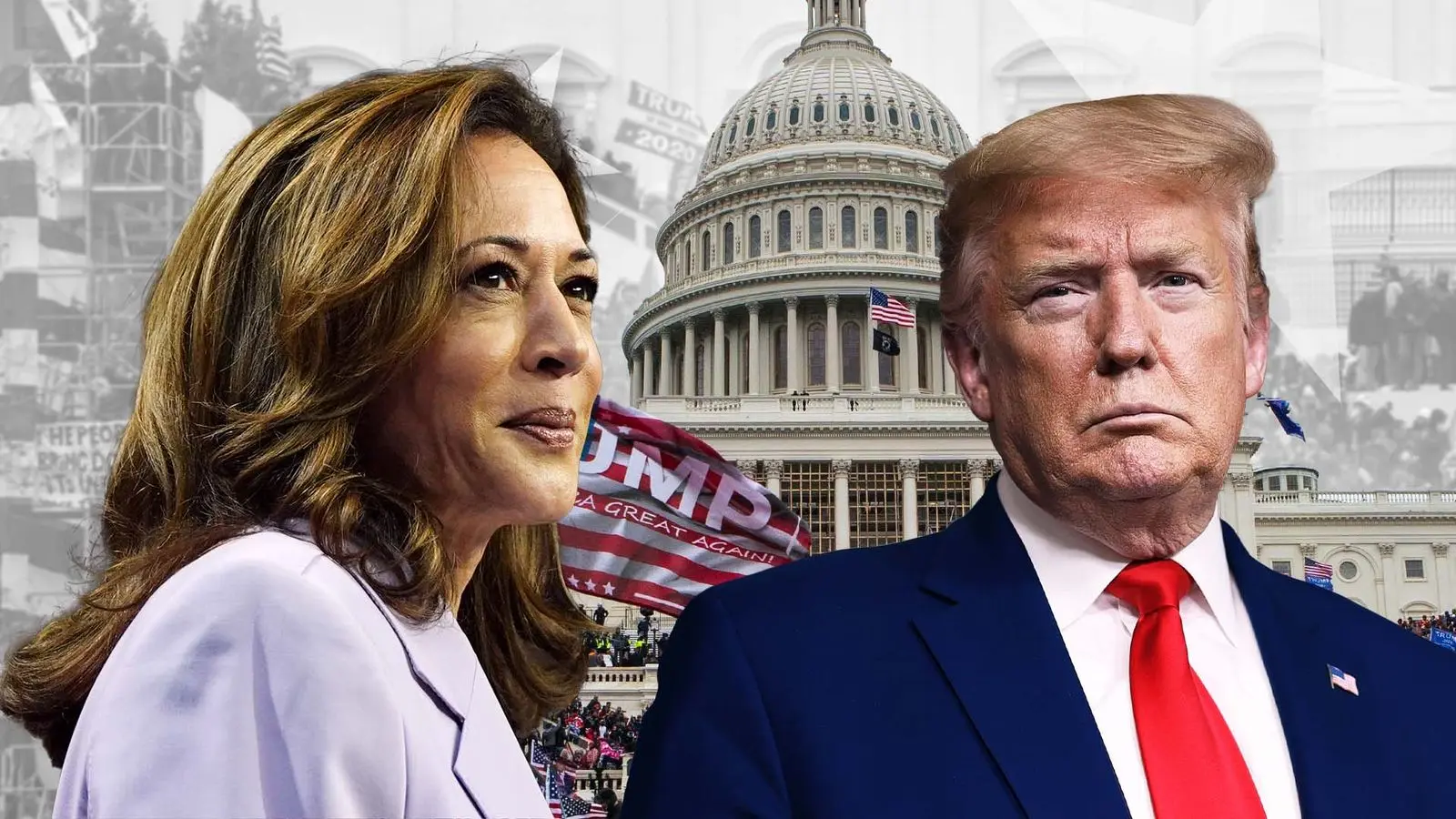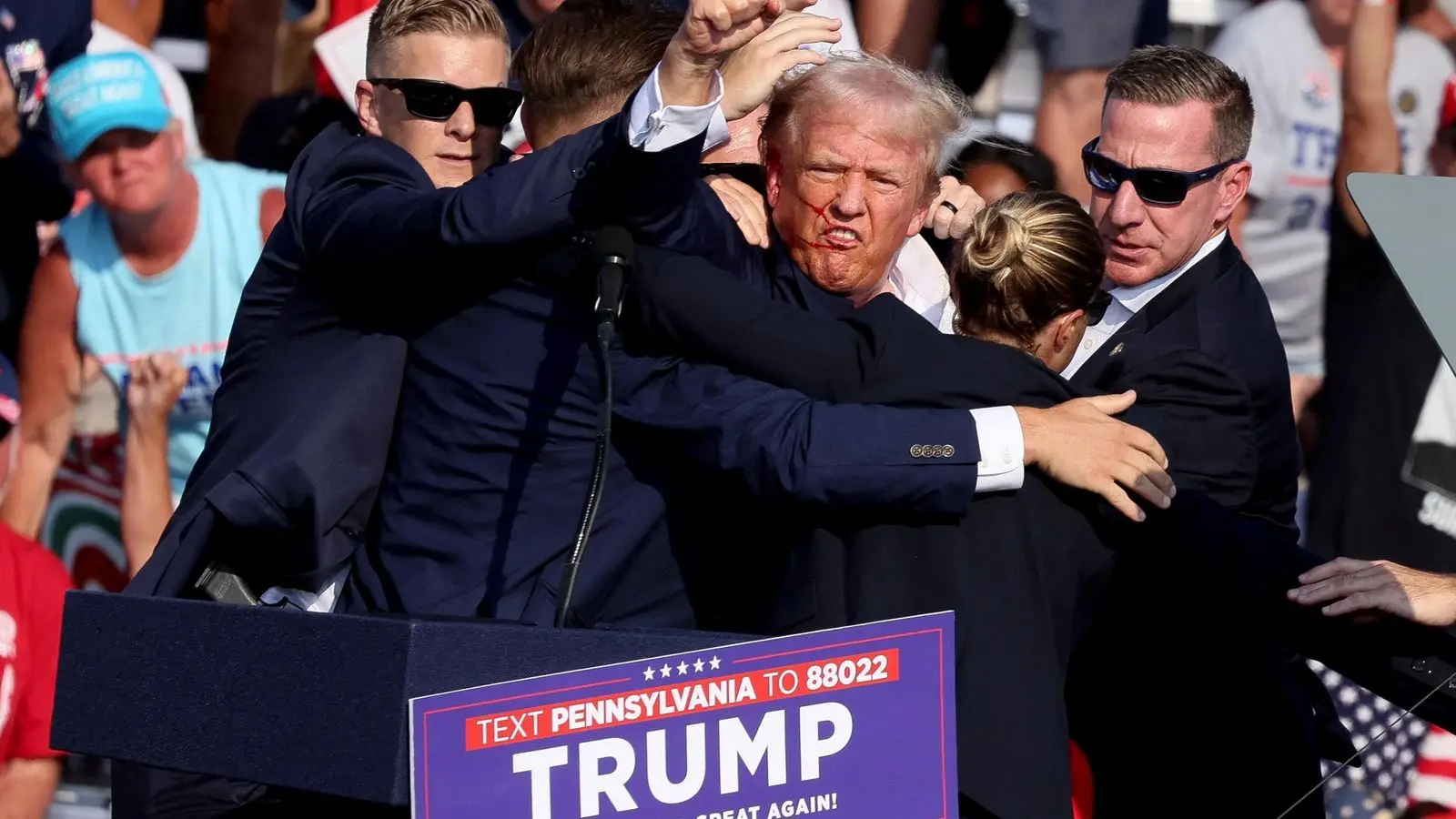How Trump is laying the groundwork for rejecting the election result if he loses
Mr Trump has repeatedly told his supporters to make sure the Democrats don't cheat in this year's election - just one example of how he is trying to undermine confidence in the legitimacy of the very democratic process in which he is competing.
Next week's Democratic National Convention in Chicago will be characterised by a mood of relief among delegates.
The switch of candidate from the aged Joe Biden to his vice president Kamala Harris has put the party back in contention in this year's general election, when it seemed set to be flattened by Donald Trump's re-election bid for the presidency.
It still looks like a close race. And even if Ms Harris wins the vote she may not become president.
Much may also hang on how strongly Democratic candidates lower down the ticket perform. It may fall to the US Congress to uphold the constitution.
If Mr Trump "loses" to Ms Harris there are still arguably legitimate ways in which he could end up back in the White House.
Trump loyalists are already preparing for this fight - egged on with carefully unspecific rhetorical encouragement in rambling comments of the man himself.
Whether Mr Trump's protests against his defeat in 2020 amounted to a "Big Lie" or evidence of a "Big Steal", as a majority of Republicans now claim, he is preparing to do it again, if he loses.
At the very least America would be plunged into political and legal chaos, again, for months after the approaching election on 5 November.
It could be much worse. This month President Biden told CBS he is "not confident at all" that there will be a peaceful transition if Ms Harris is elected president.
"Now if I don't get elected it's gonna be a bloodbath," Mr Trump told an audience in March, leaving it ambiguous whether he was only talking about the prospects for the car industry there in Dayton, Ohio.
Lesser politicians are clumsier.
Republican Ohio state senator George Lang apologised after declaring: "I'm afraid if we lose, it's going to take a civil war to save this country."
He did not withdraw his praise for "Bikers for Trump" or the slogan "Fight! Fight! Fight!", also mouthed by Mr Trump, fist aloft, after the assassination attempt on his life.
How Trump could win with the least votes - again
To win the presidency the successful candidate does not necessarily have to get the most votes from the people.
The victor needs the support of a majority of the electoral college - at least 270 out of 538.
Technically the election votes decide the make-up of the college, state by state. Membership does not directly reflect the views of the overall US population.
Republican nominees defeated in the popular vote, including Mr Trump and George W Bush, have become US president in three of the last seven elections.
In 2000, the dispute over Florida went to the US Supreme Court, which ruled in Mr Bush's favour. Since then Mr Trump has made three appointments which have tilted the court in his favour. The justices are likely to back him if there are any legal disputes.
Former president trying to sow seeds of chaos
Mr Trump repeatedly tells his rallies that they have to do two things - they have to vote and they have to make sure that the Democrats don't cheat.
This is just one example of how he is trying to undermine confidence in the legitimacy of the very democratic process in which he is competing. He is laying the ground in advance to challenge the results if they do not go in his favour.
The strategy is a familiar one in modern US campaigns, first formulated by the Republican strategist Roger Stone as "Stop the Steal" back in 2016, in case things did not go Mr Trump's way.
They did and at the end of his presidency, Mr Trump commuted Stone's prison sentence for lying to Congress. As shown in the recent TV documentary, A Storm Foretold, Stone was bitterly disappointed that he did not get a full pardon but he has endorsed Mr Trump again in this campaign.
If Mr Trump loses the vote he may still have successfully spread chaos and confusion which calls the results into question.
There are then potential legal routes at state level and subsequently in Congress, which could even overturn the result in his favour.
This year, election officials have until 11 December to certify the results in their state.
#news #USElections
1 year ago
Share
Add Comment


